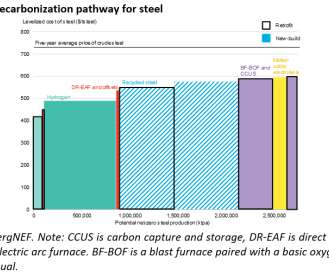BNEF: steel industry set to pivot to hydrogen in green push; additional $278B for clean capacity and retrofits
Green Car Congress
DECEMBER 1, 2021
Steel is responsible for around 7% of man-made greenhouse gas emissions every year and is one of the world’s most polluting industries. Producing green steel from hydrogen and electric furnaces will require massive amounts of clean energy, and a shift to higher grades of iron ore.












Let's personalize your content